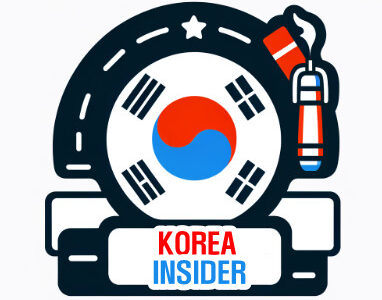Significant Changes in the KIIP Social Integration Program
Beginning January 2025, the Korean Immigration and Integration Program (KIIP), which has thus far been offered free of charge, will implement a fee-based system. This change aims to enhance the program’s effectiveness in helping immigrants systematically learn the Korean language and culture, thereby facilitating their adjustment and fostering self-sufficiency within our society.
In my experience, the KIIP has been a cornerstone for many immigrants seeking to establish their lives in Korea. However, the shift to a fee structure stems from ongoing challenges, including participant motivation and a mismatch between demand and available slots. As such, this new initiative has been devised to address these issues.
What is the KIIP Social Integration Program?
The KIIP is an educational initiative tailored for newly arrived immigrants, offering them a pathway to acquire essential language skills and cultural insights necessary for successful integration. Since its launch in 2009, the program has been entirely funded by the Ministry of Justice, aiming to create self-sufficient members of society who are well-versed in Korean laws and cultural norms.
Drawing from my observations, the program’s structured curriculum has empowered many individuals to connect with their communities, providing them with invaluable knowledge and enhancing their confidence in everyday interactions.
Why Introduce Fees?
The introduction of a partial fee system is a response to various operational challenges identified in the free program. While the no-cost model has attracted many participants, it has also led to diminished motivation among some, resulting in suboptimal achievement levels.
Interestingly, despite a surge in demand, constraints in government funding have limited the number of available courses. Education experts have proposed that implementing a fee could foster a sense of responsibility among participants, enhancing their commitment to the program.
Details of the Paid KIIP Program
The fee structure will differ among participants, with fees associated with the specific courses taken. Participants will be required to pay 100,000 KRW for every 100 hours of instruction, which encapsulates approximately 20% of the program’s operational expenses. This translates to a contribution of 1,000 KRW per hour.
What’s noteworthy is that individuals who are considered to be contributing significantly to the national interest, as well as those categorized as vulnerable members of society, will be exempt from fees. Moreover, participants displaying consistent dedication will be eligible for a 50% discount. This thoughtful approach speaks volumes about the government’s intention to support those most in need.
Exemptions and Reductions
The Ministry of Justice meticulously evaluated the potential financial impact of this new fee policy to ensure it does not burden immigrants unduly. For example, immigrants who have made notable contributions to the national interest, alongside those in vulnerable situations, will incur no costs at all.
Furthermore, participants with exemplary attendance and recommended learning attitudes may be eligible for a reduced fee, ensuring that dedicated individuals are appropriately recognized and supported. It’s an encouraging sign that the program aims to inclusively benefit all demographics.
Expected Outcomes of the Paid Program
Transitioning to a fee-based system is expected to foster a more serious approach among participants, promoting improved academic performance. Additionally, this funding mechanism will alleviate the strains caused by limited government financial contributions, paving the way to introduce more courses. Ultimately, this change seeks to establish a more balanced educational offering that meets the demand.
Comprehensive Overview of the KIIP
-
Legal Foundation
As per Article 39 of the Immigration Control Act, the Minister of Justice is authorized to execute social integration programs that offer education, information, and counseling services to assist foreign nationals pursuing Korean citizenship or permanent residency. -
Target Audience & Implementation
- Target Audience: All legally residing foreigners registered in Korea, as well as naturalized citizens within the past three years.
- Implementing Agencies: Education is delivered by designated universities, local governments, public institutions, family centers, and private organizations, with a national network of 335 facilities as of August 2024.
-
Educational Curriculum
The program encompasses a Korean language and culture course (415 hours) alongside a social understanding course (100 hours). -
Fee Schedule
- For stages 1 to 4: Each stage incurs a fee of 100,000 KRW for 100 hours.
- Stage 5 includes a basic course (permanent residency, 70 hours) for 70,000 KRW and an advanced course (naturalization, 30 hours) for 30,000 KRW.
- Level 0 (15 hours) and those exempt from fees are free; eligible participants can pay 50% of the fee.
- Exemptions and Reductions
- Exemptions: Individuals classified under various laws, including the Independence Activists Law and the National Merit Law.
- Reductions: Participants demonstrating 100% attendance and excellent learning behaviors, as recommended by instructors, can qualify for reduced fees.
This overview reflects the ongoing developments at the time of writing and is subject to change according to government policy updates. It is essential to note that this information is provided for informational purposes only and should not be interpreted as legal advice. For further guidance, I encourage you to visit the 1:1 Consultation Board.
Through these changes, I sincerely hope the KIIP continues to empower immigrants as they navigate their paths in Korea, fostering an inclusive environment where everyone has the opportunity to thrive.
